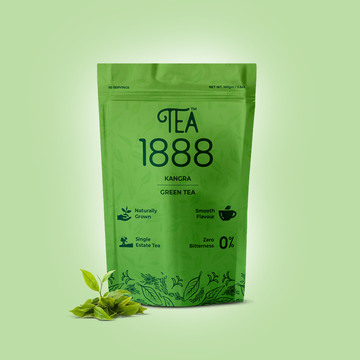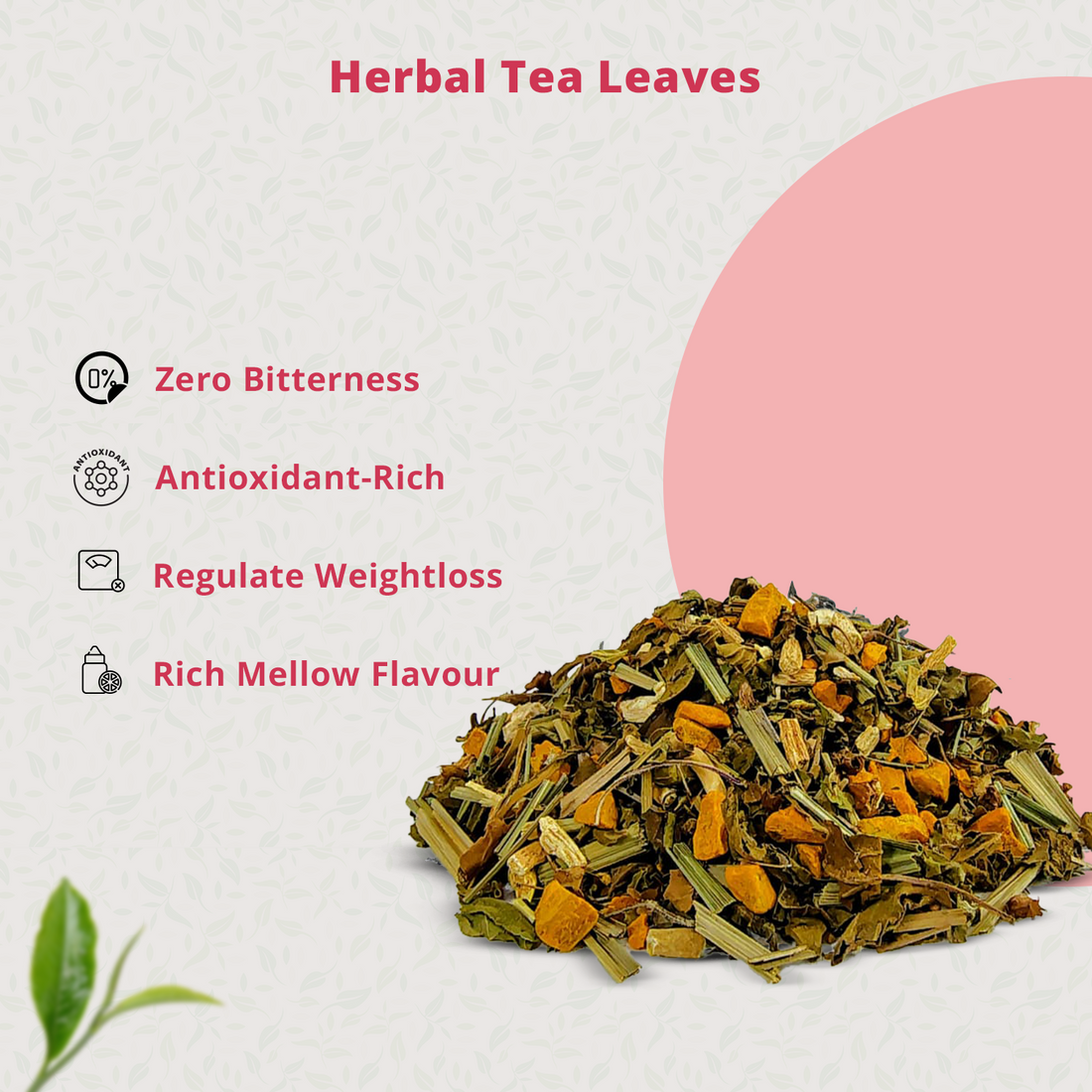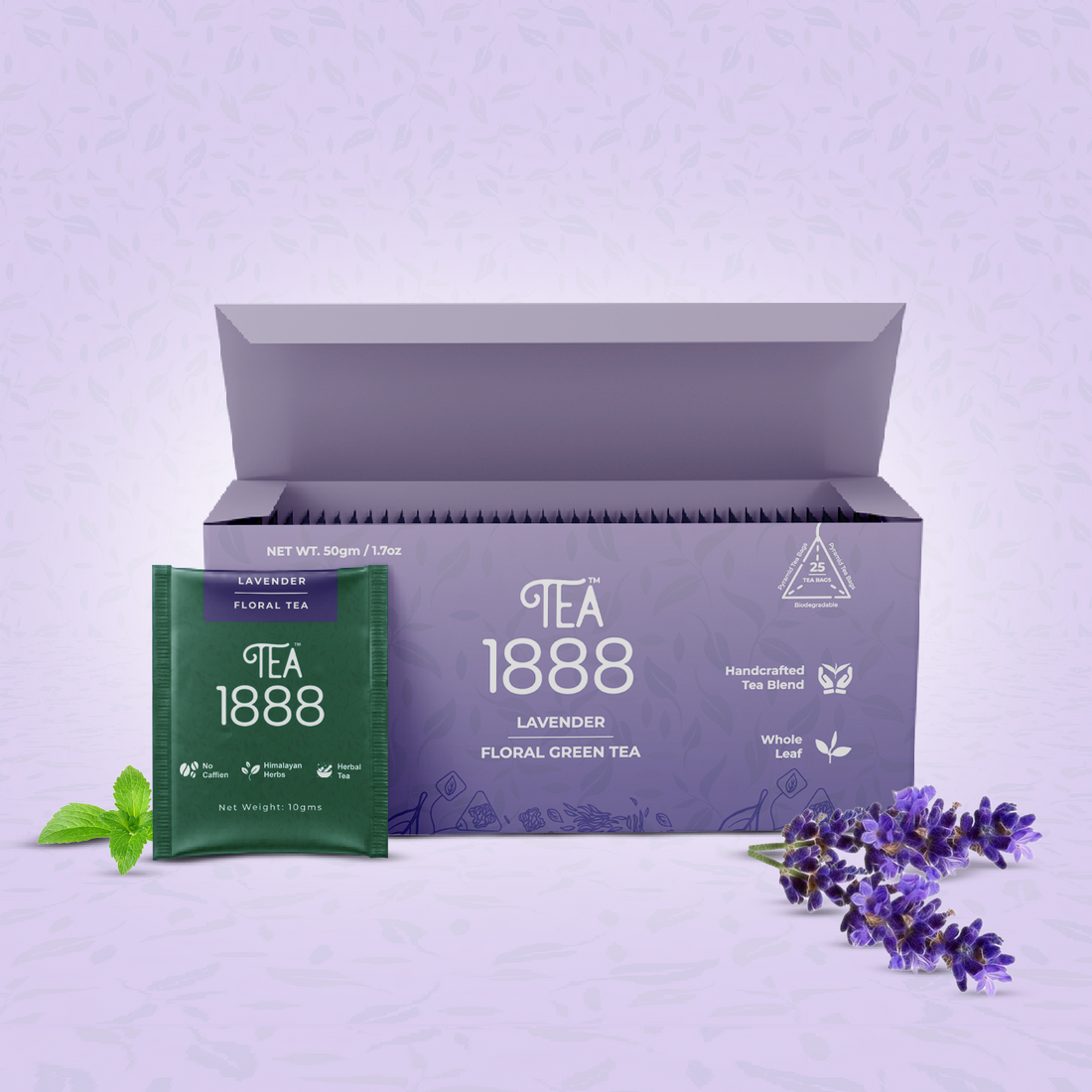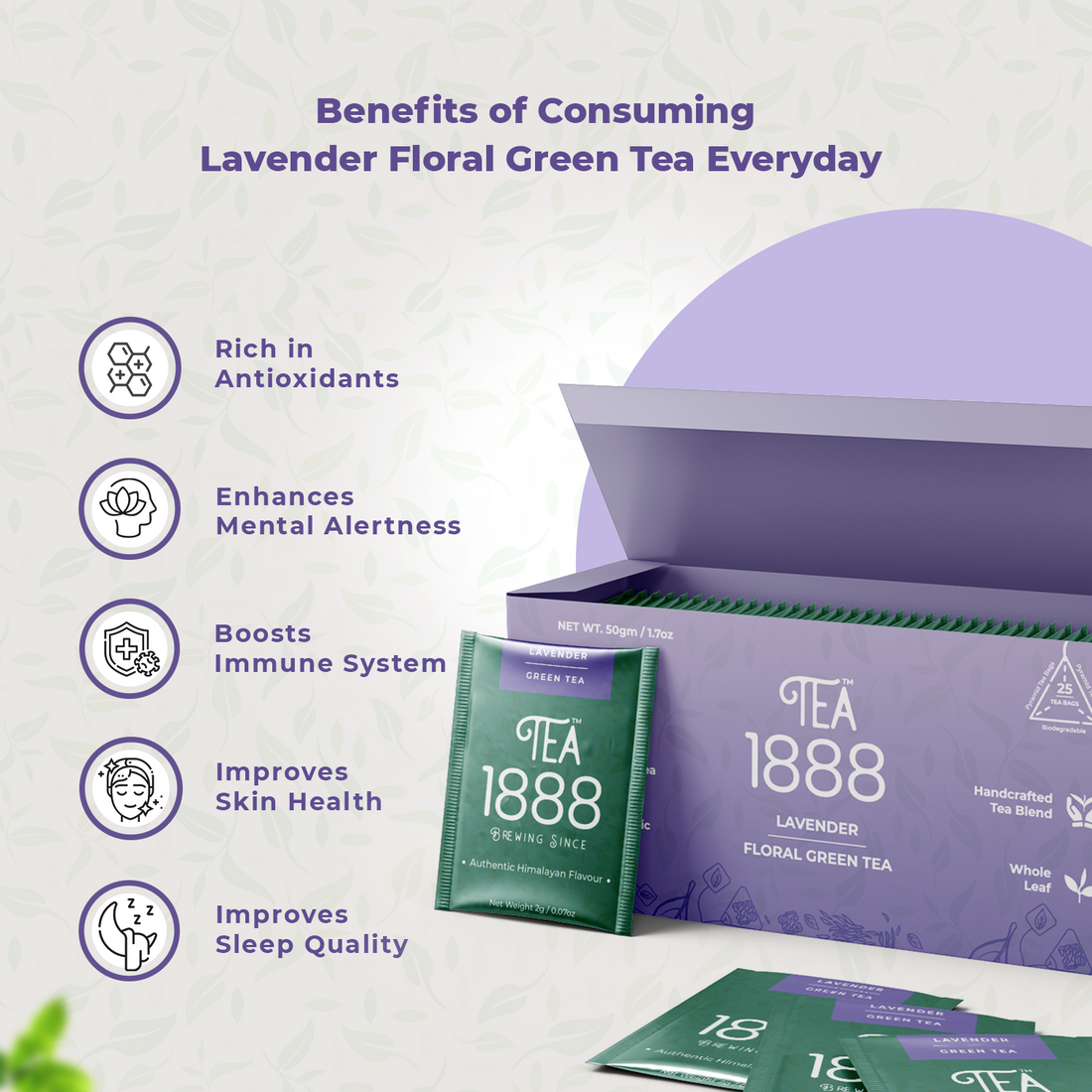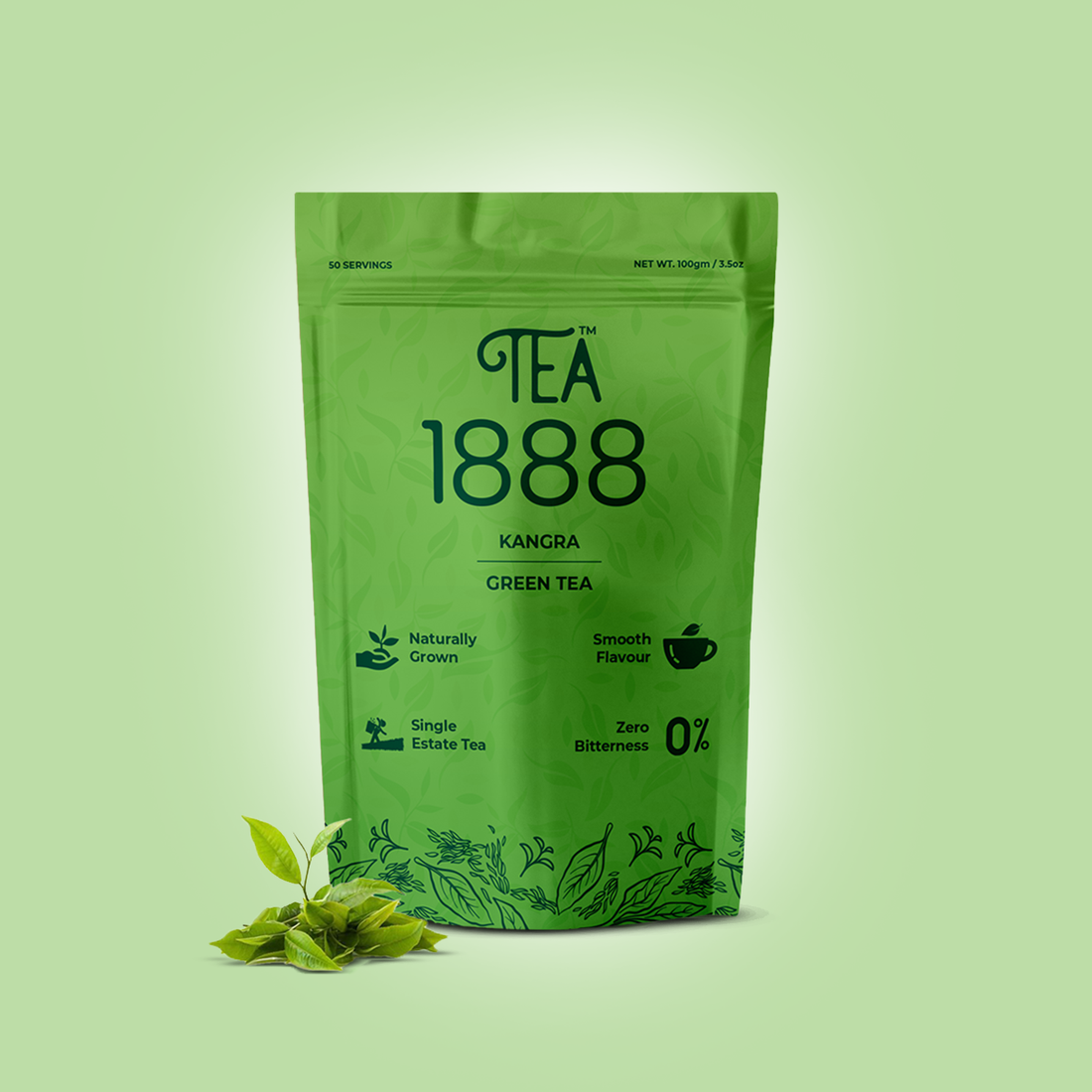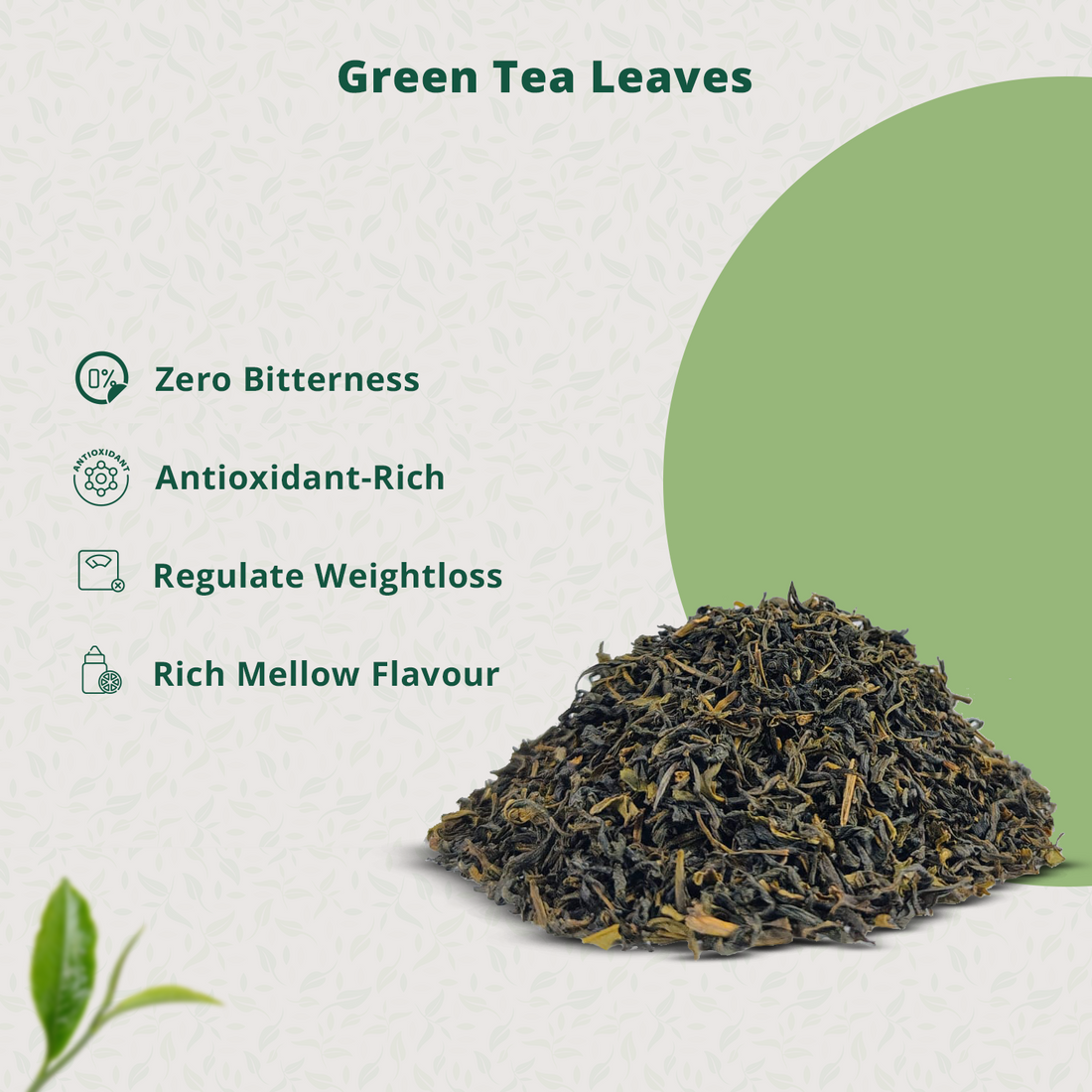Green tea's benefits go way beyond being just a pleasant drink for a rainy afternoon. Would you believe that over 600,000 tons of this powerful beverage are enjoyed worldwide each year? These numbers are impressive and with good reason too.
Solid scientific research supports green tea's health benefits. Studies reveal that people who drink five or more cups daily have a 26% lower chance of dying from cardiovascular disease. On top of that, it packs one of the highest amounts of L-theanine, an amino acid that can reduce anxiety and stress if you keep taking them. People in countries where green tea is popular tend to have lower cancer rates. Research shows that drinking five or more cups daily leads to a33% reduced risk of developing type 2 diabetes.
You might want to boost your heart health, improve your memory, or just add a healthy drink to your daily routine - green tea can help with all of these. The best way to get the most from this ancient drink is to understand how it works in your body. Let's look at 15 proven benefits that science has discovered about this remarkable beverage.
Alleviates Anxiety and Stress
 Image Source:MDPI
Image Source:MDPI
Green tea benefits include stress reduction, which helps people deal with daily pressure. You can get natural relief without the side effects that come with many anti-anxiety medications.
Anxiety and stress relief from green tea
Do you feel overwhelmed? People who drink green tea regularly show lower stress levels when they face stressful situations . A study found that pharmacy students who drank low-caffeine green tea during practice had much less stress than those who drank placebo tea . Green tea also helps control adrenal stress hormones. Studies show it reduces high levels of cortisol, DHEA, ACTH, and corticosterone by a lot .
L-theanine in green tea and its calming effects
L-theanine makes green tea so calming. This unique amino acid can cross the blood-brain barrier . It competes with glutamate for receptors and helps you relax without feeling sleepy. L-theanine lifts levels of GABA, dopamine, and serotonin – these neurotransmitters control mood, stress, and sleep .
L-theanine works in several ways:
- Helps you relax without making you drowsy
- Reduces your body's stress responses
- Makes you sleep better
- Boosts mental clarity when stressed
Research shows that taking 200-400 mg/day of L-theanine helps lower stress and anxiety when you face stressful situations . Even a daily cup of tea with just 15 mg can help reduce your stress .
Scientific studies on green tea and mental health
Clinical studies back up green tea's mental health benefits. Healthy adults who took L-theanine for four weeks had fewer stress symptoms in a random trial . Another study showed that people drinking six cups of decaffeinated green tea daily for six weeks felt less depressed, anxious, and stressed .
L-theanine alone helps you relax at 200 mg doses. When combined with caffeine (also in green tea), it works even better at improving attention-switching tasks and alertness . Green tea's benefits come from a collaborative effort of its compounds rather than just one ingredient.
Enhances Brain Function and Memory

Image Source:Frontiers
Green tea does more than just calm you down - it's a natural brain booster. Studies show it helps sharpen your focus, improve memory, and might protect your brain from memory loss as you get older.
Green tea and cognitive performance
People who drink green tea regularly tend to have better brain function, especially as they age. A study found tea drinkers scored much higher on Montreal Cognitive Assessment (MoCA) tests compared to those who didn't drink tea . People who kept drinking green tea also did better on the Hopkins Verbal Learning Test, both right after learning new information and when recalling it later .
You don't need to drink much to see results. The more green tea you drink, the lower your risk of brain fog - research shows drinking 2 or more cups daily cuts your risk of cognitive problems by 54% compared to having 3 or fewer cups weekly . The benefits get better the more you drink .
L-theanine and caffeine synergy
Two key compounds work together to give green tea its brain-boosting power:
- L-theanine: An amino acid that helps you relax without making you sleepy
- Caffeine: A stimulant that keeps you alert and focused
These compounds work well on their own, but together they create something special. The L-theanine-caffeine combo helps you switch between tasks faster and more accurately while making it easier to ignore distractions. This team-up helps you stay focused when doing challenging mental work.
Green tea benefits for memory retention
Green tea seems to work wonders for working memory—your brain's short-term storage and processing system. Older women (50-63 years) who took green tea extract showed better working memory . They did notably better on reading span tasks .
Drinking green tea regularly might stack up the benefits over time. Research shows that after 12 weeks of daily green tea catechins, people performed better on two-back memory tests . Green tea protects your memory by fighting oxidative stress - it lowers harmful markers like MDA while boosting protective enzymes like SOD and GPx .
The benefits go beyond just memory. Tea drinkers show improved performance on Trail Making and Victoria Stroop tests, which shows better mental flexibility and faster thinking .
Supports Heart Health
 Image Source:Medical News Today
Image Source:Medical News Today
Green tea protects your heart in many ways, and research shows it's one of the best natural ways to maintain cardiovascular health.
Green tea and cholesterol reduction
Clinical studies show that people who drink green tea can lower their total cholesterol by 4.66 mg/dL and LDL (bad) cholesterol by 4.55 mg/dL . Green tea extract supplements have proven even more effective, reducing total cholesterol by 7.62 mg/dL and LDL cholesterol by 5.80 mg/dL in controlled trials . Your body's good HDL cholesterol stays unchanged, unlike with many cholesterol medications .
The best results come from high-quality trials where researchers removed caffeine from the equation . A modest 2-5% drop in cholesterol from regular green tea can make a big difference in your heart health over time .
Blood pressure regulation with green tea
People who drink green tea regularly see their systolic blood pressure drop by 1.98 mmHg and diastolic blood pressure by 1.92 mmHg . The results are better when you start with higher blood pressure readings .
Black tea drinkers who had 3 cups daily for 6 months saw their 24-hour systolic blood pressure decrease by 2.7 mmHg at 3 months and 2.0 mmHg at 6 months . You'll get the best results if you drink green tea for 12 weeks or longer .
Cardiovascular benefits of drinking green tea
Green tea helps your heart beyond just improving cholesterol and blood pressure:
- Each extra cup (236.6 mL) of green tea daily cuts cardiovascular death risk by about 4%
- People over 65 reduced their cardiovascular death risk by 11% per cup (236.6 mL)
- Japanese research found drinking more than five cups daily cut heart attack or stroke death risk by 26%
Catechins, especially EGCG (epigallocatechin gallate), are the key compounds in green tea that make up about 59% of total catechins . These antioxidants help keep blood vessels healthy, improve heart function, reduce oxidative stress, and boost nitric oxide production from endothelial cells .
A large study of Japanese participants backs these findings. Just two cups of green tea daily reduced cardiovascular death risk by 22-33% .
Aids in Weight Loss and Fat Burning

Image Source:MDPI
Want to speed up your weight loss? Green tea might be your answer. Research shows it can help burn fat through several biological processes.
Catechins and metabolism boost
Green tea's weight loss benefits come from its catechins—especially epigallocatechin gallate (EGCG)—which work with caffeine to improve energy metabolism. Studies show green tea can increase your resting metabolic rate by approximately 3-4%, and some research has recorded up to an 8% increase . This means if you burn 1800 calories daily, you could burn an extra 54-72 calories without any additional activity .
The science behind this is fascinating. Catechins block an enzyme called catechol-O-methyltransferase (COMT), which usually breaks down the fat-burning hormone norepinephrine. This blockage helps keep norepinephrine levels high and leads to more fat breakdown . Caffeine plays its part by blocking phosphodiesterase, which raises cyclic adenosine monophosphate levels and stimulates your sympathetic nervous system .
Green tea extract vs brewed tea
The difference between brewed tea and concentrated extracts is significant. Most weight loss supplements use green tea extract (GTE) instead of brewed tea because it packs more catechins . Research suggests GTC supplements work best at doses between 270-1200 mg daily .
A word of caution is needed here. The American College of Gastroenterology reports thatgreen tea extract in weight-loss pills might damage your liver . Regular brewed green tea is safer because it has lower catechin concentrations.
Green tea and exercise synergy
Green tea works even better with exercise. One study found people who took green tea extract burned 17% more fat during exercise compared to those on a placebo. Another study showed that green tea combined with resistance training helped overweight people reduce body fat while gaining lean body mass and muscle strength .
Timing is key. You should drink green tea about 30 minutes before your workout to maximize fat burning during exercise. A 12-week study revealed that people who drank catechin-rich green tea (609.3 mg catechins daily) lost more visceral fat and dropped 1.0 kg in body weight.
Helps Manage Type 2 Diabetes
Green tea can help you manage type 2 diabetes (T2DM) and keep your blood sugar levels in check. Scientists have found this simple beverage packs quite a punch when it comes to diabetes management.
Green tea and insulin sensitivity
Green tea polyphenols, especially EGCG (epigallocatechin gallate), work through the AMPK pathway and make your body more sensitive to insulin. EGCG acts like insulin by controlling genes that regulate gluconeogenesis enzymes. Your muscle cells absorb glucose better when EGCG stimulates them, which helps process sugar more effectively.
The catechins in green tea boost insulin sensitivity by triggering PPARγ and promoting adipocyte differentiation. On top of that, a substance called 7WA from green tea helps release more insulin when glucose levels rise through the cAMP-Akt pathway. These natural processes help curb insulin resistance—a major issue in T2DM.
Blood sugar regulation with green tea
Green tea works wonders for fasting blood glucose levels. A meta-analysis showed that people who drank green tea had lower fasting glucose by -0.09 mmol/L and their hemoglobin A1c (HbA1c) dropped by -0.30%. These numbers are crucial markers that show how well blood sugar stays controlled over time.
People who drank green tea in clinical trials showed better fasting blood glucose (SMD = -0.41) and glycated hemoglobin (SMD = -0.68) than those who didn't. Their insulin resistance index improved too (SMD = -0.70).
Clinical evidence on diabetes prevention
The largest longitudinal study shows that drinking three to four cups of tea daily lowers your risk of diabetes by about 20%. This is a big deal as it means that drinking more than four cups daily cuts T2DM risk by 20%.
Not all studies agree though. Some systematic reviews found no real difference between green tea extract and placebo for HbA1c, fasting insulin, or glucose levels. Green tea works best as a supplement to regular diabetes treatment, not a replacement.
You'll get the most benefits from plain green tea without milk or sweeteners that might affect your blood sugar. Green tea offers an affordable and safe way to enhance your diabetes management naturally.
Improves Skin Health

Image Source:Healthline
Green tea can revolutionize your skin's appearance from the outside in, and research proves it. This ancient beverage provides several skin benefits beyond its well-known health advantages.
Green tea benefits for skin elasticity
Green tea's antioxidant powerhouse, especially EGCG (epigallocatechin gallate), improves your skin's structure and function. Clinical research shows that people who consumed green tea polyphenols for 12 weeks saw better skin elasticity, roughness, scaling, density, and water retention. These polyphenols boost collagen and elastin production while blocking enzymes that break down these structural proteins. A split-face, double-blind study showed that green tea extract cream increased skin elasticity to 0.748 ± 0.05 compared to 0.722 ± 0.05 with placebo in just four weeks.
Green tea and acne reduction
Green tea provides promising solutions for acne sufferers. A meta-analysis of five randomized controlled trials revealed that topical green tea extract reduced inflammatory acne lesions by an average of 11.39 counts. Topical application decreased non-inflammatory lesion counts by 32.44. Green tea works against acne in three ways:
- Reduces sebum production by up to 60% after eight weeks of application
- Curbs acne-causing bacteria through antimicrobial properties
- Lowers inflammation through anti-inflammatory compounds
People who consumed green tea orally saw smaller improvements, with inflammatory lesions reducing by 1.40 counts.
Anti-aging properties of green tea
Matrix metalloproteinases (MMPs) speed up skin aging by breaking down collagen, elastin, and other structural proteins. Green tea extract at 0.0875 mg/mL concentration blocks MMP-2 activity. On top of that, green tea polyphenols shield against photoaging from UV exposure. Research shows less wrinkle formation in UV-irradiated subjects using green tea extracts. Photos clearly show better wrinkle reduction with green tea extract compared to placebo.
People who drink green tea and apply it to their skin see measurable improvements in skin microrelief, firmness, and moisture retention.
Boosts Immune System
Green tea's immune-strengthening properties make it a valuable drink in today's world. This ancient beverage protects your body through several pathways and improves your body's natural defences.
Antioxidants and immune defence
Green tea packs powerful antioxidants and polyphenols, including epigallocatechin gallate (EGCG), that combat disease-causing agents. These compounds help stimulate your immune system's various branches. Healthcare workers who kept taking a catechin-containing beverage for 12 weeks cut their risk of upper respiratory tract infections by half.
Lab studies show EGCG can change specific protein activities to stop flu virus replication. The catechins in green tea also work against viral infections like influenza, adenovirus, and hepatitis.
Green tea as a prebiotic
Green tea works as a natural prebiotic that supports good bacteria in your digestive tract. Research shows people who drink green tea have more Bifidobacterium species in their gut microbiota. This prebiotic effect matches what conventional prebiotics can do.
People who don't usually drink green tea saw improvements in their colon environment. The drink helped balance the ratio of Bifidobacterium to Enterobacteria—a key sign of colonization resistance. Your body uses this resistance to stop harmful bacteria from settling in your gut.
Green tea and gut health
Green tea's relationship with gut health goes beyond bacterial numbers. Its polyphenols boost intestinal health by:
- Helping good bacteria grow while stopping harmful ones
- Boosting production of beneficial short-chain fatty acids
- Creating more diverse gut microbiota that supports immune function
A notable study found that brief green tea extract supplements changed the gut microbial community. The supplements increased Lactobacillus and Bifidobacteria populations. These positive changes stayed stable despite outside stressors, which suggests green tea provides lasting immune protection.
Your daily routine can benefit from green tea's immune system support through these multiple protective mechanisms, beyond its well-known advantages.
Reduces Risk of Cancer

Image Source:MDPI
Research increasingly shows that green tea might help lower cancer risk. This remarkable plant contains compounds that could prevent several types of this life-threatening disease.
EGCG and its anti-cancer properties
Epigallocatechin gallate (EGCG), green tea's most abundant catechin, shows remarkable cancer-fighting qualities. Research indicates that EGCG causes cell cycle arrest and triggers apoptosis (programmed cell death) in cancer cells. EGCG proves more effective at stopping cell growth than other tea polyphenols. It even outperforms the chemotherapy drug 5-fluorouracil in colorectal cancer studies.
This compound fights cancer through several ways. We found it deactivates the PI3K/Akt/mTOR pathway, which leads to cytotoxic autophagy and cell death. EGCG can enter the nucleus and interact with DNA and RNA. It also binds to various proteins including kinases, growth factor receptors, and apoptotic proteins.
Green tea and oxidative stress
Green tea polyphenols exhibit both antioxidant and pro-oxidant properties. Lab tests show strong antioxidant activity, but its pro-oxidant effects might actually help fight cancer. These compounds create reactive oxygen species through autoxidative reactions.
Direct antioxidant effects seem weaker in living organisms. However, green tea boosts the production of protective enzymes like catalase, superoxide dismutase, and glutathione peroxidase. These enzymes prevent DNA damage and stop abnormal cell growth.
Epidemiological evidence on cancer prevention
Population studies reveal different links between green tea intake and cancer prevention. Meta-analyzes show fewer cases of endometrial, lung, oral and ovarian cancers, plus non-Hodgkin's lymphoma. To name just one example, see how people who drink more green tea have lower breast cancer risk (OR = 0.78).
Results vary for breast, esophageal, gastric, and liver cancers . Studies found no clear benefits for colorectal, pancreatic, and prostate cancers. Non-smokers seem to get more protection against lung cancer from green tea than smokers.
Clinical trials offer promising results about green tea extract's ability to stop premalignant prostate lesions from becoming tumors. We have a long way to go, but we can build on this progress. Current evidence neither proves nor disproves green tea's role in preventing cancer, yet drinking it seems beneficial for overall health.
Promotes Bone Health

Image Source:MDPI
Strong, healthy bones are the foundations of an active lifestyle. Bone loss becomes more common as we age. The good news is that green tea helps protect our skeletal health.
Green tea and osteoporosis prevention
Green tea consumption shows a strong link to lower osteoporosis risk. Studies reveal that postmenopausal women who skip green tea or drink less than one cup daily face nearly twice the odds of developing osteoporosis compared to those who drink 1-3 cups daily (OR 1.91 and 1.82, respectively). Three meta-analyzes have shown that tea consumption boosts bone mineral density (BMD) and reduces osteoporosis risk.
Green tea's flavonoids protect bones through their estrogen-like effects. These compounds boost osteoblast differentiation and reduce osteoclastic activity. The original compounds help maintain bone mass because of their powerful antioxidant properties.
Bone density improvement with green tea
People who drink green tea regularly see positive changes in their BMD at key skeletal points. A nationwide Korean study showed that women who drank green tea had a lower chance of osteopenia in the lumbar spine (OR 1.54) and femur neck (OR 1.50) compared to those who didn't drink it. The BMD benefits showed up most clearly in these areas.
Green tea polyphenols boost bone health by:
- Protecting osteoblasts from oxidative stress
- Increasing alkaline phosphatase activity
- Promoting bone mineralization
- Adding fluoride that helps bone structure
Postmenopausal bone support
Women experience faster bone loss after menopause due to lower estrogen production. Research shows that green tea can alleviate this bone deterioration. Green tea contains compounds that act like estrogen and help preserve bone mass during this critical period.
Clinical trials back these findings. A six-month study showed that postmenopausal women who took green tea polyphenols (500 mg daily) had higher levels of serum bone-specific alkaline phosphatase, which indicates bone formation. Researchers now want to conduct longer studies to confirm these promising early results.
Improves Longevity
Looking to add years to your life? A cup of green tea might be your answer. This ancient beverage offers benefits that go way beyond the reach of basic health maintenance and could actually help you live longer.
Green tea and anti-aging polyphenols
Green tea's age-defying magic comes from its abundant polyphenol content, especially catechins like EGCG (epigallocatechin gallate). These powerful compounds help fight cellular aging by protecting DNA from damage and keeping telomere length intact. EGCG acts as a "senolytic" agent that removes aging cells while boosting autophagy, your body's natural cleanup process that slows down with age. Lab studies show that EGCG reduces p21 senescence-associated protein in fat tissue, which directly fights age-related cellular breakdown.
Studies on green tea and lifespan
Research supporting green tea's life-extending properties keeps growing stronger. Animal studies have shown remarkable results:
- EGCG extended median lifespan in mice by approximately 25%
- Mice that consumed EGCG had a 46.96% lower average risk of death
- Green tea increased lifespan in fruit flies by 19%
Human studies paint an even more promising picture. People who drink 3-5 cups daily gain an average of 2.24 years in life expectancy. Another study found that seven cups of green tea daily cut all-cause mortality risk by 62%. Regular tea drinkers who enjoy three or more cups weekly develop heart disease and stroke 1.41 years later and live 1.26 years longer than those who don't drink tea.
Lifestyle factors and green tea consumption
Benefits seem to increase with dosage in a clear pattern. Each additional three cups daily reduces coronary heart disease risk by 27%, cardiac disease by 26%, stroke by 18%, and total mortality by 24%. In spite of that, benefits vary among different groups. Men show better results than women, likely because they drink tea more often (48% versus 20%).
Green tea proves more protective than black tea since black tea's fermentation process oxidizes its beneficial polyphenols. It also helps that drinking green tea creates moments of calm in your day—which might contribute to its life-extending benefits.
Supports Oral Health

Image Source:Zen Dental Center
Green tea does more than just improve your overall health - it's great for your oral health too. Many dentists now recognize how it helps keep teeth and gums healthy in several ways.
Green tea and cavity prevention
Green tea has high levels of catechins that reduce plaque on teeth and stop decay. These powerful antioxidants work by stopping harmful bacteria that cause cavities. Research shows that green tea extract helps prevent cavities even with almost no fluoride. This tells us that other components in the tea are doing the heavy lifting.
The tea's polyphenols reduce acid production and stop cavity-causing bacteria from sticking to your teeth. This leads to fewer cavities in children's teeth. The catechins also block specific gum disease-causing bacteria like Porphyromonas gingivalis and Prevotella species , which gives you complete oral protection.
Green tea for fresh breath
Bad breath bothering you? Green tea reduces volatile sulfur compounds (VSCs) like hydrogen sulfide (H2S) and methyl mercaptan (CH3SH) that make breath smell bad. Studies show green tea works better than other breath fresheners at quickly reducing both these gasses.
EGCG (epigallocatechin gallate) in green tea fights bad breath by reacting with CH3SH. This happens through a chemical process where methylthio groups enter EGCG's B ring. The reaction neutralizes the compounds that cause bad breath. Studies confirm that green tea powder reduces VSCs and prevents bad breath through its disinfectant and deodorant properties.
Green tea vs coffee for teeth
Here's what you should know about choosing between coffee and green tea for dental health:
- Green tea stains teeth less than coffee because coffee has more tannins and dark pigments called chromogens
- Your saliva helps balance green tea's acidity, but you should wait an hour before brushing
- Adding milk to your tea might help protect teeth thanks to its calcium
Green tea extract mouthwash helps protect against wear and tear of dentin. You'll get the best results by drinking three to four cups daily, though some research suggests up to ten cups to get enough polyphenols.
Improves Hair Health

Image Source:Healthline
Are hair problems getting you down? Green tea helps your locks and provides natural solutions for thinning hair and scalp issues.
Green tea and hair growth stimulation
The main compound in green tea, epigallocatechin gallate (EGCG), helps hair follicles grow longer and gets more hair growth. Research shows that EGCG at 5 μM concentration improved hair growth by 181.2% compared to control groups. This compound works in two ways - it increases cell growth and reduces cell death in dermal papilla cells.
Green tea shows promising results for people worried about hair loss. EGCG blocks 5-alpha-reductase activity, an enzyme connected to androgenetic alopecia. A study on animals showed that 33% of subjects who received green tea's polyphenol extract had substantial hair regrowth after six months of treatment.
DIY green tea hair rinse
You can easily make your own green tea treatment:
- Brew 1-2 green tea bags in boiling water for 5 minutes
- Allow to cool completely
- After shampooing, pour the solution over your hair and scalp
- Massage gently into the roots
- Wrap hair in a warm towel for 30-40 minutes
- Rinse with cool water
This simple rinse acts as a natural conditioner that leaves your hair soft and shiny while making your scalp healthier .
Green tea for scalp health
Green tea's benefits go beyond growth stimulation. Its catechin content has anti-inflammatory and antibacterial properties that calm irritation . It also helps control sebum production and curbs fungal infections that cause dandruff .
Regular use removes dead skin cells and flaking while creating perfect conditions for hair growth . Studies prove that green tea improves blood circulation to the scalp, which helps deliver nutrients to hair follicles better .
Green tea works best when you drink it and apply it to your hair, making it healthier and stronger from root to tip.
Reduces Inflammation
Chronic inflammation causes many health problems. Green tea contains powerful compounds that curb inflammatory processes in your body.
Anti-inflammatory catechins in green tea
Green tea's catechins, especially EGCG (epigallocatechin gallate), are powerful anti-inflammatory agents. Studies show EGCG blocks proinflammatory genes including COX-2, TNF-α, and MMP-13 . This happens because EGCG suppresses NF-κB signaling cascades and various MAPK pathways . Green tea extract works as an antioxidant by reducing ROS (reactive oxygen species) that lead to inflammatory damage .
Green tea and chronic inflammation
Research shows how well green tea works against systemic inflammation. A meta-analysis found that people with metabolic syndrome and related disorders who drank green tea had much lower serum TNF-α levels . Green tea polyphenols work through multiple chemical pathways to stop chronic inflammation . They target nitric oxide production, which becomes a problem in diseased joints . Lower inflammation levels over time might explain why green tea helps prevent cardiovascular disease, neurodegenerative diseases, and cancer .
Green tea for IBS and joint pain
Green tea protects your joints. Animal studies of arthritis showed that green tea polyphenols reduced arthritis by lowering type II collagen-specific IgG levels and reducing inflammatory cell infiltration. Animals treated with green tea extract had fewer inflammatory markers than control groups.
Green tea polyphenols can help with IBS symptoms by reducing gut inflammation. Clinical trials showed that green tea extract lowered fecal calprotectin and myeloperoxidase - key markers of intestinal inflammation. Better intestinal health associates with improved glycemic control and insulin sensitivity.
Regular anti-inflammatory medications often cause side effects. Green tea offers a natural option with minimal side effects when you drink it in moderation.
Protects Against Neurodegenerative Diseases

Image Source:MDPI
Neurodegenerative diseases pose major health challenges worldwide. Research shows that green tea can protect against these conditions by a lot.
Green tea and Alzheimer's prevention
Green tea contains epigallocatechin gallate (EGCG), a powerful molecule that breaks apart tau protein tangles - a key sign of Alzheimer's disease. EGCG binds to clefts along each layer of tau fibers and gradually destabilizes them. Studies show that people who drink green tea have a lower risk of cognitive decline and Alzheimer's. Research data reveals a preventive link, as people who keep taking green tea show reduced cases of dementia. EGCG also protects the brain by stopping amyloid-beta buildup, lowering brain inflammation, and keeping blood vessels healthy.
Parkinson's disease and green tea
Green tea polyphenols protect against Parkinson's disease (PD), which ranks as the second most common neurodegenerative disorder. These compounds shield dopaminergic neurons - cells that die progressively in PD patients. Early-stage PD patients who received green tea polyphenols showed improved UPDRS scores by a lot compared to placebo groups after six months. On top of that, it blocks dopamine transporter activity, which stops environmental neurotoxins from damaging neurons. Lab studies confirm that EGCG strongly prevents α-synuclein from clumping - the protein that creates toxic Lewy bodies in PD.
Neuroprotective antioxidants in green tea
Your brain becomes vulnerable to oxidative damage especially when you have high oxygen consumption. Green tea polyphenols can cross the blood-brain barrier and provide direct protection through:
- Potent antioxidant activity that fights harmful free radicals
- Anti-inflammatory effects that lower neuroinflammation
- Iron chelation that stops toxic oligomers from forming
Countries where people drink more green tea report lower rates of neurodegenerative diseases. Research shows that drinking tea three or more times weekly associates with lower dementia risk.
Regulates Blood Sugar Levels
Blood sugar balance plays a vital role for everyone, not just people with diabetes. A newer study shows that green tea could help maintain healthy glucose levels through several biological pathways.
Green tea and fasting glucose
Clinical studies show green tea helps control fasting blood glucose levels consistently. Meta-analyzes reveal that people who drink green tea have lower fasting glucose by -0.09 mmol/L and -1.44 mg/dL across many trials. A newer study, published in 2024, found stronger results, where green tea groups showed better improvement in fasting blood glucose (SMD = -0.41) than control groups.
The results aren't always the same though. Some detailed reviews found no real difference between green tea extract and placebo for fasting glucose levels (SMD, -0.10; 95% CI, -0.50 to 0.30). These differences might come from how the tea was prepared, catechin levels, or the type of people in the study.
Green tea's effect on insulin
Green tea polyphenols, especially EGCG, improve insulin sensitivity in several ways. EGCG brings back Akt activity and GLUT4 expression while it improves AMPKα activation in skeletal muscle. Green tea extract also reduces insulin resistance by lowering the activation of negative modulators like PKC, IKK, and JNK.
Clinical evidence backs these findings. A meta-analysis showed green tea improved the insulin resistance index substantially (SMD = -0.70) . Another study found that taking green tea extract daily for 3 months led to lower fasting insulin levels and insulin resistance .
Green tea and metabolic syndrome
People with metabolic syndrome - marked by larger waist size, blood sugar issues, high blood pressure, low HDL, and high triglycerides-respond well to green tea. The active compounds in green tea, particularly EGCG, help control glucose by improving insulin sensitivity and glucose absorption in fat cells.
Green tea extract has shown blood sugar-lowering effects similar to metformin. The water-soluble polysaccharide 7WA in green tea helps insulin secretion through cAMP-PKA-dependent pathways. This provides another way to regulate blood sugar.
Higher concentrations of green tea (3% versus 1%) tend to work better for lowering fasting blood glucose. How often you drink it doesn't seem to affect the results much.
Comparison Table
|
Benefit |
Key Compounds |
Main Mechanism |
Notable Research Finding |
Recommended Consumption |
|
Reduces Anxiety and Stress |
L-theanine |
Competes with glutamate receptors, raises GABA, dopamine, and serotonin |
Reduced stress responses in pharmacy students |
200-400mg L-theanine/day |
|
Improves Brain Function |
L-theanine, Caffeine |
Improves attention-switching and reduces distractions |
54% lower risk of cognitive impairment with ≥2 cups daily |
2+ cups daily |
|
Supports Heart Health |
Catechins (EGCG) |
Reduces cholesterol and controls blood pressure |
Decreased total cholesterol by 4.66 mg/dL |
5+ cups daily |
|
Helps Weight Loss |
Catechins, Caffeine |
Increases metabolic rate and fat burning |
Raises resting metabolic rate by 3-4% |
270-1200mg GTE daily |
|
Helps Manage Diabetes |
EGCG |
Improves insulin sensitivity via AMPK pathway |
Reduced fasting glucose by -0.09 mmol/L |
3-4 cups daily |
|
Improves Skin Health |
EGCG |
Stimulates collagen and elastin production |
Reduced inflammatory acne by 11.39 counts |
Both topical and oral consumption |
|
Strengthens Immune System |
Polyphenols |
Improves gut microbiota and prebiotic effects |
50% reduction in upper respiratory infections |
Not specified |
|
Reduces Cancer Risk |
EGCG |
Triggers cell cycle arrest and cell death |
Reduced breast cancer risk (OR = 0.78) |
5+ cups daily |
|
Promotes Bone Health |
Flavonoids |
Increases osteoblast differentiation |
91% higher odds of preventing osteoporosis |
1-3 cups daily |
|
Improves Longevity |
Polyphenols |
Maintains telomere length and reduces DNA damage |
2.24 years increased life expectancy |
3-5 cups daily |
|
Supports Oral Health |
Catechins |
Stops harmful bacteria and reduces plaque |
Reduces sulfur compounds causing bad breath |
3-4 cups daily |
|
Improves Hair Health |
EGCG |
Improves follicle growth |
181.2% better hair growth at 5 μM concentration |
Both topical and oral consumption |
|
Reduces Inflammation |
EGCG |
Blocks COX-2, TNF-α, and MMP-13 expression |
Decreased serum TNF-α levels |
Not specified |
|
Protects Brain Health |
EGCG |
Breaks down tau protein tangles |
Reduced dementia cases |
3+ times weekly |
|
Controls Blood Sugar |
EGCG, 7WA |
Improves insulin sensitivity |
Reduced fasting glucose by -0.09 mmol/L |
3% concentration recommended |
Conclusion
Scientific research shows green tea is a powerful health booster with proven benefits. Studies have shown this ancient drink protects many body systems through its bioactive compounds. EGCG emerges as the main beneficial component that breaks down harmful tau proteins and stimulates hair follicle growth.
Without doubt, green tea shows amazing versatility. It reduces anxiety through L-theanine and supports heart health by lowering cholesterol. The combination of caffeine and L-theanine boosts brain function, and it might even help extend lifespan by maintaining telomere length. Research expresses its preventive power against chronic conditions like type 2 diabetes. People who drink five cups daily have a 33% lower risk of developing this condition.
Your body's response may vary, but research suggests drinking 3-5 cups daily provides the best benefits. Green tea works best as part of a comprehensive approach to wellness instead of being a miracle cure. Your health goals should determine how much you drink, whether you want to improve brain function, manage weight, or protect your heart.
Some studies show mixed results, but most evidence suggests green tea is a valuable addition to daily life. Regular drinking proves more beneficial than occasional sips, which shows consistency matters more than quantity. Adding this beneficial drink to your daily routine is a simple yet powerful way to improve your health. Modern science now verifies what traditional wisdom has known for centuries.
FAQs
Q1. How much green tea should I drink daily to get health benefits?
Most research suggests drinking 3-5 cups of green tea per day to obtain optimal health benefits. However, the exact amount may vary depending on your specific health goals and individual factors.
Q2. Can green tea help with weight loss?
Yes, green tea can aid in weight loss. It contains compounds like catechins and caffeine that can boost metabolism and increase fat burning. Studies show it can increase your resting metabolic rate by 3-4%, potentially enhancing weight loss efforts when combined with a healthy diet and exercise.
Q3. Does green tea have any side effects?
While generally safe for most people, excessive green tea consumption may lead to side effects in some individuals. These can include caffeine-related issues like insomnia or anxiety, interactions with certain medications, and potential impacts on iron absorption. It's best to consult with a healthcare provider if you have concerns.
Q4. How does green tea benefit heart health?
Green tea supports heart health in several ways. It can help lower total and LDL cholesterol levels, reduce blood pressure, and decrease the risk of cardiovascular disease. Studies show that drinking 5 or more cups daily is associated with a 26% lower risk of death from heart-related issues.
Q5. Can green tea improve brain function?
Yes, green tea can enhance brain function. It contains caffeine and L-theanine, which work together to improve focus, memory, and overall cognitive performance. Regular consumption has been linked to a lower risk of cognitive decline and neurodegenerative diseases like Alzheimer's and Parkinson's.
